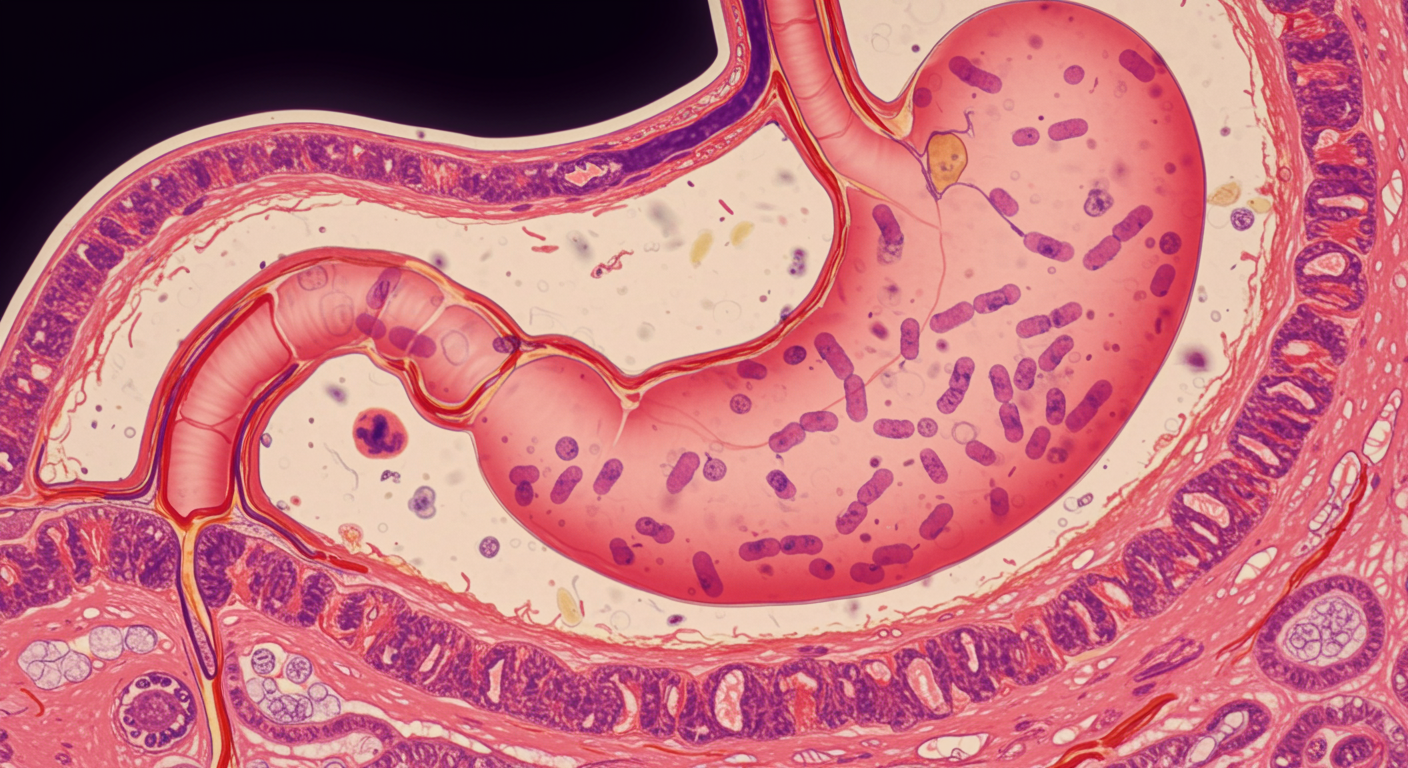Does H. Pylori Infection Protect Against or Cause GERD?
The relationship between Helicobacter pylori and GERD is complex and paradoxical - H. pylori infection can both protect against and contribute to reflux disease depending on the bacterial strain, infection location, and individual host factors. This dual nature explains conflicting research findings and has important implications for treatment decisions in patients with both conditions.
Dr. Kumar’s Take
This research reveals one of the most fascinating paradoxes in gastroenterology. H. pylori can actually protect against GERD by reducing acid production, but it can also worsen reflux in certain circumstances. The key is understanding that not all H. pylori infections are the same - the bacterial strain, where it lives in the stomach, and the individual’s immune response all matter. This complexity explains why some patients develop GERD after H. pylori eradication and why treatment decisions need to be individualized.
What the Research Shows
This comprehensive review examined multiple studies investigating the relationship between H. pylori infection and GERD, including epidemiological surveys, treatment outcome studies, and mechanistic research. The analysis revealed that H. pylori’s effects on GERD depend on multiple factors including bacterial virulence factors, infection topography, and host genetic factors.
The research demonstrated that H. pylori can have both protective and detrimental effects on GERD through different mechanisms, explaining the apparently contradictory findings in the literature.
How This Works (Biological Rationale)
H. pylori infection can protect against GERD by reducing gastric acid production through chronic gastritis and atrophic changes, particularly when the infection involves the gastric body. The bacteria can also produce ammonia and other compounds that buffer gastric acid.
However, H. pylori can worsen GERD when infection is limited to the gastric antrum, potentially increasing gastrin production and acid secretion. Certain virulent strains (CagA-positive) may also cause more severe inflammation that affects gastroesophageal junction function.
Results in Real Numbers
- GERD prevalence in H. pylori positive: 20-30% lower in some populations
- Post-eradication GERD development: 15-25% of patients develop new reflux symptoms
- Strain-dependent effects: CagA-positive strains associated with 40% higher GERD risk
- Geographic variation: Protective effects stronger in Asian populations (60-70% reduction)
- Acid production changes: 30-50% reduction in acid output with corpus gastritis
- Treatment response: H. pylori eradication improves GERD in 60% when antral-predominant
Safety, Limits, and Caveats
The relationship between H. pylori and GERD shows significant geographic and ethnic variations that may not be fully explained by current research. The studies often don’t account for dietary factors, genetic polymorphisms, and other environmental influences that could modify the relationship.
Additionally, the long-term consequences of maintaining H. pylori infection for GERD protection must be weighed against the increased risks of peptic ulcer disease and gastric cancer associated with chronic infection.
Practical Takeaways
- Consider H. pylori status when evaluating GERD patients, especially those with treatment-resistant symptoms
- Recognize that H. pylori eradication may worsen GERD in some patients, particularly those with corpus-predominant gastritis
- Individualize treatment decisions based on patient factors, infection characteristics, and GERD severity
- Monitor for new or worsening GERD symptoms after H. pylori eradication therapy
- Consider prophylactic PPI therapy during and after H. pylori treatment in high-risk patients
- Understand that the relationship varies significantly between populations and geographic regions
Related Studies and Research
- Physiology, Pepsin
- Pharmacology of Proton Pump Inhibitors
- Current Advancement on the Dynamic Mechanism of Gastroesophageal Reflux Disease
- Global Prevalence and Risk Factors of Gastroesophageal Reflux Disease
- Episode 25: The Great GERD Mistake - How Medicine Made Heartburn Worse and How to Fix It
FAQs
Should I get tested for H. pylori if I have GERD?
H. pylori testing may be appropriate for GERD patients with treatment-resistant symptoms, family history of gastric cancer, or certain ethnic backgrounds - discuss with your healthcare provider.
Will treating my H. pylori infection make my GERD worse?
Some patients do develop or experience worsening GERD after H. pylori eradication, though this varies by individual factors and infection characteristics.
Can H. pylori infection actually be beneficial for some people?
While H. pylori can reduce acid production and GERD risk in some individuals, the infection also increases risks of ulcers and gastric cancer, so treatment decisions should consider all factors.
How do doctors decide whether to treat H. pylori in GERD patients?
Treatment decisions consider factors like symptom severity, infection strain, patient age, family history, and geographic/ethnic background.
What should I expect after H. pylori treatment if I have GERD?
Some patients experience temporary worsening of GERD symptoms after eradication, which may require acid suppression therapy - follow up with your healthcare provider for monitoring and management.
Bottom Line
The relationship between H. pylori and GERD is complex and individualized, with the bacteria potentially protecting against or contributing to reflux disease depending on multiple factors. Understanding this relationship is crucial for making informed treatment decisions in patients with both conditions.


